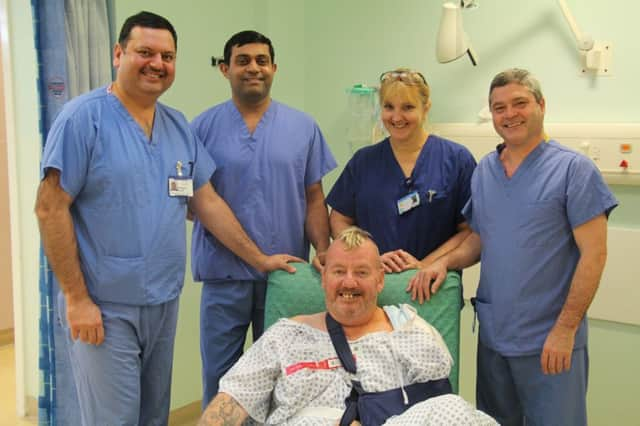Hartlepool man is one of first to stay awake during shoulder surgery at Teesside hospital


Malcolm Payne, 60, had been suffering with a painful shoulder for some time.
However, additional health problems meant he faced an increased risk if he was to have a general anaesthetic for his operation.
Advertisement
Hide AdAdvertisement
Hide AdSurgeons and anaesthetists at North Tees and Hartlepool NHS Foundation Trust, though, are now performing shoulder and elbow surgery under nerve block only.
That means patients stay awake during the surgery, and they can go home on the same day, suffering none of the after-effects of general anaesthesia.
Consultant orthopaedic surgeon Mr Rajesh Nanda and the theatre team at the University Hospital of North Tees repaired the damage to Mr Payne’s shoulder by carrying out keyhole surgery.
Mr Payne said: “During the operation I had no pain, I could just feel movement.
Advertisement
Hide AdAdvertisement
Hide Ad“If anyone else is having an operation like this, I would definitely recommend having it done this way.
“The care I have received has been fantastic.”
Consultant anaesthetist Dr Austin Mathews, who performed the nerve block, said: “Having the surgery performed under a nerve block alone avoids the risks of a general anaesthetic and patients don’t experience the side effects such as nausea and vomiting. It is a highly skilled and safe procedure. During the procedure we can administer a low dose of sedative to keep the patient calm. But, the patient remains awake and can watch the operation being performed on the screen if they wish to.”